Written by Karel Minor, Humane Pennsylvania President & CEO
 Humane PA is very excited to share details about our next steps to deliver the most impactful services to animals and people in our community! The needs of animals and the community have rapidly changed a great deal in recent years. In the last 20 years, the number of animals entering Humane PA shelters has declined by over 85%. Shelter euthanasia has declined by 99%. These numbers reflect national statistics.
Humane PA is very excited to share details about our next steps to deliver the most impactful services to animals and people in our community! The needs of animals and the community have rapidly changed a great deal in recent years. In the last 20 years, the number of animals entering Humane PA shelters has declined by over 85%. Shelter euthanasia has declined by 99%. These numbers reflect national statistics.
What worked in the past for animals and people is no longer needed at the same scale. It also means that some things we couldn’t do in the past because of space or resource limitations can be done now. Humane PA is focusing on three major service and quality expansions to best serve the needs of today’s animals and people.
- Targeted Free Roaming and Feral Cat Sterilization: While spaying/neutering was highly effective in reducing overpopulation
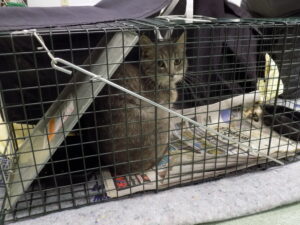 stemming from house pets, the limited and scattershot approaches for feral and free-roaming cats have not been as successful. That’s because sterilizing a few cats from this colony and a few from that colony leaves plenty of cats behind to breed. Humane PA is now taking a different approach, based on data and models with proven success. Since February, under the leadership of free-roaming cat whisperer, Alex Young, our Healthy Pets Initiative staff have been working directly with caretakers of colonies ranging from a half dozen to a hundred cats. One colony at a time, we have been sterilizing 100% (or as close as possible) of partner-managed colonies. By sterilizing every single cat in an extremely short time frame, we ensure there are no new litters, avoid boom and death cycles, and make it possible to effectively intervene when one or two new cats move into a colony.
stemming from house pets, the limited and scattershot approaches for feral and free-roaming cats have not been as successful. That’s because sterilizing a few cats from this colony and a few from that colony leaves plenty of cats behind to breed. Humane PA is now taking a different approach, based on data and models with proven success. Since February, under the leadership of free-roaming cat whisperer, Alex Young, our Healthy Pets Initiative staff have been working directly with caretakers of colonies ranging from a half dozen to a hundred cats. One colony at a time, we have been sterilizing 100% (or as close as possible) of partner-managed colonies. By sterilizing every single cat in an extremely short time frame, we ensure there are no new litters, avoid boom and death cycles, and make it possible to effectively intervene when one or two new cats move into a colony.
This targeted approach means the same number of sterilizations results in a dramatically improved overall reduction in breeding. So far we have successfully assisted fifteen colonies achieve full sterilization! Since free-roaming cats account for a significant portion of the kittens entering our care or needing fostering, we hope and expect to see a further reduction in incoming kittens in the coming year. For the test of this approach, all colonies have been in Berks County and sterilized at the Reading Campus. Our goal is to expand this program into Lancaster and begin identifying colonies for enrollment in this invitation-only partnership in the coming year.
2. Awesome Cat and Critter Adoption Center Upgrades: 15 years ago, the Humane League of Lancaster County had a bold vision for a new cat adoption center. They even got cool artist renderings painted (see the picture below)!
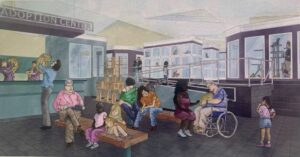
But 15 years ago, it was a very different world. Far too many cats were still coming into shelters and, unfortunately, the project never began. Until now. Humane PA has taken that original plan and expanded on it. We will be creating the adoption center our cats and the community deserve and we hope it will serve as a new standard for all shelters.
Cats have always gotten the short end of the stick. Before they came to a shelter they could roam their entire house, even the entire world if they were indoor/outdoor cats. However, in shelters, they get stuck in tiny cages. If they were lucky they got somewhat bigger cages and group rooms, but even these were smaller than ideal or lacked enrichment and mental engagement. The new cat adoption center won’t quite give them the world but it comes closer. Cats suited for group housing will have large and bright spaces with windows to the world. Cats needing to be housed alone will get triple-sized, multi-compartment caging to move around in. Research has long shown that more space for cats decreases stress, and less stress makes for healthier, happier, and more adoptable cats.
Critters will be getting an upgrade, too! They will be getting more and improved species-specific space in the new adoption center. Renovations begin in the next few weeks and we will be opening the new center within a couple of months. We are incredibly excited to finally fully realize the dream of an even better place for cats and critters to spend time while they wait for a new home.
3. Boarding Services: Over the years, the Lancaster kennel expanded to house what was once many thousands of dogs entering the shelter every year. In the past few years the number of dogs entering our shelters, and shelters nationwide, have plummeted thanks to expanded placement options, access to vet care and sterilization, and changes in our collective expectations around pet ownership. But even as options have expanded, huge gaps in services have appeared. This is especially true in the area of pet boarding. Prices have skyrocketed, often putting long-term or day boarding out of reach for many. It has become standard for boarding facilities to screen out which clients they will accept, turning away animals that don’t like play groups or have special needs.
 We heard this loud and clear in a recent survey of our supporters. Over 90% of respondents said they thought there needed to be more affordable options. Over 60% of respondents told us that they had faced barriers of some type that prevented them from accessing, including cost or the health or behavioral challenges of their pets. Humane PA knows that some of these pets might end up in shelters if owners can no longer access routine boarding services. Humane PA also knows that there are few or no boarding options regularly available for emergency response, domestic violence victims, those facing health crises, and police dogs.
We heard this loud and clear in a recent survey of our supporters. Over 90% of respondents said they thought there needed to be more affordable options. Over 60% of respondents told us that they had faced barriers of some type that prevented them from accessing, including cost or the health or behavioral challenges of their pets. Humane PA knows that some of these pets might end up in shelters if owners can no longer access routine boarding services. Humane PA also knows that there are few or no boarding options regularly available for emergency response, domestic violence victims, those facing health crises, and police dogs.
That’s why we began renovations to our Lancaster kennels and will soon be offering boarding services to accommodate many of these needs. Like our veterinary services, these services will be made affordable and accessible, with the ability to provide additional discounts for those in need. Although we expect to offer the type of boarding which is typical these days, we will also offer boarding services for animals who don’t do well in play groups or need quieter and calmer conditions, as well as police dogs, pets with special needs, pets requiring emergency boarding, and critters and some exotics. These populations are increasingly underserved or completely unserved. Renovations will also allow us to continue to house some of our own dogs and offer limited dog adoption services.
We know these are big changes. While the improvements for cats may resonate with you as improvements in scope and scale, the boarding services may feel very different or even alien to what is perceived as “animal sheltering”. Although we had the kernel of an idea over a decade ago, since then several organizations around the nation have pioneered boarding programs to address the new needs of their communities to great success. These services are needed and they make a difference, whether it’s the pet of an adopter or a police dog of an officer needing to travel, the cats of someone displaced by fire, the dog of someone who is admitted to the hospital with a heart attack, or the pets of those trying to flee domestic violence
services may feel very different or even alien to what is perceived as “animal sheltering”. Although we had the kernel of an idea over a decade ago, since then several organizations around the nation have pioneered boarding programs to address the new needs of their communities to great success. These services are needed and they make a difference, whether it’s the pet of an adopter or a police dog of an officer needing to travel, the cats of someone displaced by fire, the dog of someone who is admitted to the hospital with a heart attack, or the pets of those trying to flee domestic violence
Like all the things we do for people and animals, we can do these things better and for more animals with the support and time of great volunteers like you. We look forward to sharing our progress with you and we hope that you’ll embrace these innovative steps to address today’s and tomorrow’s needs of animals and people.


 I don’t like to admit it, but as an independent rescuer for decades, I became judgmental of people who struggled to give basic care to their pets. When I met pet owners who did not match my level of pet care, it was easy for me to immediately deem them as uncaring and irresponsible without knowing any further details! However, when I started working professionally in animal welfare, I met people who had the same empathy for the animals, but with far less resources. They were rescuing outside kittens, helping injured strays or inheriting pets from friends/family that can no longer care for them and sometimes, they need a little help.
I don’t like to admit it, but as an independent rescuer for decades, I became judgmental of people who struggled to give basic care to their pets. When I met pet owners who did not match my level of pet care, it was easy for me to immediately deem them as uncaring and irresponsible without knowing any further details! However, when I started working professionally in animal welfare, I met people who had the same empathy for the animals, but with far less resources. They were rescuing outside kittens, helping injured strays or inheriting pets from friends/family that can no longer care for them and sometimes, they need a little help.  turn, leaves more space at the shelter for the animals that really need a safe place, vet care and possibly a new family (or are reunited!).
turn, leaves more space at the shelter for the animals that really need a safe place, vet care and possibly a new family (or are reunited!). 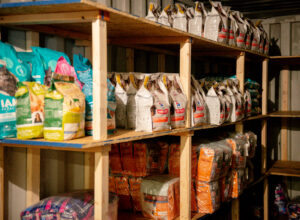 benefit from our organization’s enrollment in a food program that provides the same brand and type of food to everyone. Ongoing participation in this program results in a win-win situation:
benefit from our organization’s enrollment in a food program that provides the same brand and type of food to everyone. Ongoing participation in this program results in a win-win situation:
 There’s nothing more exciting to a pup than heading to the wide-open spaces of Humane Pennsylvania’s
There’s nothing more exciting to a pup than heading to the wide-open spaces of Humane Pennsylvania’s  Did you know that Humane Pennsylvania is a proud sponsor of the
Did you know that Humane Pennsylvania is a proud sponsor of the 
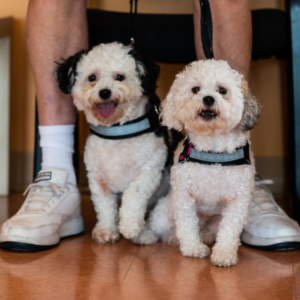 The perfect way to show that you appreciate your pet is by
The perfect way to show that you appreciate your pet is by  Bubba Lou, a 6-year-old neutered male American Pit Bull Terrier, was surrendered to the
Bubba Lou, a 6-year-old neutered male American Pit Bull Terrier, was surrendered to the 
 Bubba Lou is one of the thousands of dogs, cats, and critters Humane Pennsylvania helps throughout the year. Please consider visiting the
Bubba Lou is one of the thousands of dogs, cats, and critters Humane Pennsylvania helps throughout the year. Please consider visiting the  Many refer to me as a “crazy cat lady,” but I don’t mind. I have spent more than 20 years advocating for the rights of and implementing humane management of free-roaming/community/feral cats in Berks County. I took care of 29 inside cats for four years and have volunteered in animal rescue for my entire life.
Many refer to me as a “crazy cat lady,” but I don’t mind. I have spent more than 20 years advocating for the rights of and implementing humane management of free-roaming/community/feral cats in Berks County. I took care of 29 inside cats for four years and have volunteered in animal rescue for my entire life.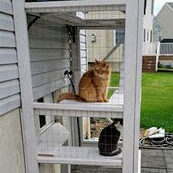
 Although your cat still exhibits some wildness about them, rest assured that they are dependent on you to provide healthy food, adequate shelter, proper stimulation, and an annual veterinary exam to keep them in tip-top shape.
Although your cat still exhibits some wildness about them, rest assured that they are dependent on you to provide healthy food, adequate shelter, proper stimulation, and an annual veterinary exam to keep them in tip-top shape. Last year, Humane Pennsylvania made some huge leaps forward. Our veterinary services expanded by opening HPA’s Healthy Pets Walk-In Clinic in Berks and Lancaster. This unique, no-appointment wellness option, priced at 40% of standard pricing, opened a door to pet caretakers for accessing vet care who were not served by existing veterinary options. It proved overwhelmingly popular, and we quickly expanded and filled!
Last year, Humane Pennsylvania made some huge leaps forward. Our veterinary services expanded by opening HPA’s Healthy Pets Walk-In Clinic in Berks and Lancaster. This unique, no-appointment wellness option, priced at 40% of standard pricing, opened a door to pet caretakers for accessing vet care who were not served by existing veterinary options. It proved overwhelmingly popular, and we quickly expanded and filled!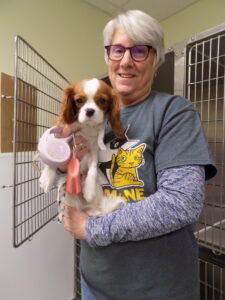 Some of these new service options may include PetNet emergency board expansions; services in support of HPA’s partnership with the
Some of these new service options may include PetNet emergency board expansions; services in support of HPA’s partnership with the  their ability to access services.
their ability to access services.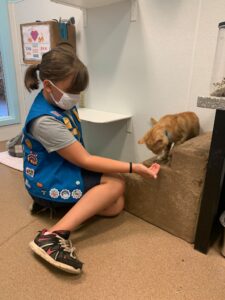 services and programs for years to come. We will be updating the community regularly through newsletters and social media. We will also be re-introducing HPA’s Welcome Waggin’ tours in April to offer you a behind-the-scenes look at the work we are doing to better serve animals and people!
services and programs for years to come. We will be updating the community regularly through newsletters and social media. We will also be re-introducing HPA’s Welcome Waggin’ tours in April to offer you a behind-the-scenes look at the work we are doing to better serve animals and people!
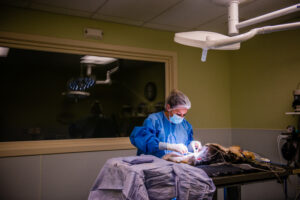
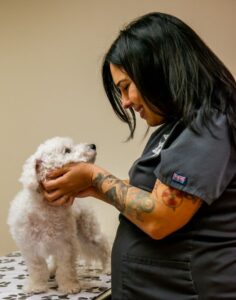 pets will prevent future costly issues such as uterine infections, cancers, and behavioral problems. For more information or to make an appointment, please visit our website:
pets will prevent future costly issues such as uterine infections, cancers, and behavioral problems. For more information or to make an appointment, please visit our website:  Rabbits have been in our lives since the 5th century, when these adorable creatures won the hearts of humans and were domesticated to be pets. Did you know rabbits are currently the second-most popular pet, after goldfish? And according to insider.com*, other than cats and dogs, rabbits are one of the most popular pets in the U.S. — second only to goldfish. It’s no wonder these critters get a whole month dedicated to finding their forever homes.
Rabbits have been in our lives since the 5th century, when these adorable creatures won the hearts of humans and were domesticated to be pets. Did you know rabbits are currently the second-most popular pet, after goldfish? And according to insider.com*, other than cats and dogs, rabbits are one of the most popular pets in the U.S. — second only to goldfish. It’s no wonder these critters get a whole month dedicated to finding their forever homes. climb onto or dig in — all are AMAZING in the eyes of a bun. You can teach them anything you can teach a dog: sit, stay, jumping through hoops, jump up, etc. There’s simply no end to what you can fill their little heads with.
climb onto or dig in — all are AMAZING in the eyes of a bun. You can teach them anything you can teach a dog: sit, stay, jumping through hoops, jump up, etc. There’s simply no end to what you can fill their little heads with. You do have to keep in mind, however, that owning a rabbit (just like any other pet) isn’t always all fun and games. You need to be prepared for the inevitable vet bills, and establishing a relationship with an exotics vet will ease some of your worries if an emergency should one day occur.
You do have to keep in mind, however, that owning a rabbit (just like any other pet) isn’t always all fun and games. You need to be prepared for the inevitable vet bills, and establishing a relationship with an exotics vet will ease some of your worries if an emergency should one day occur.
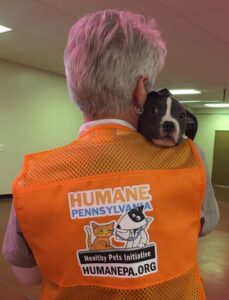
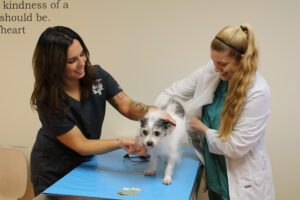

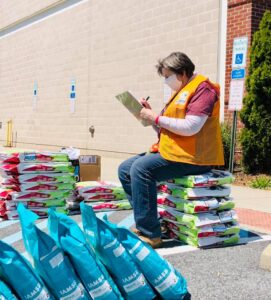

 the first non-profit walk-in animal clinic in the region. The
the first non-profit walk-in animal clinic in the region. The 
 vaccinations. Guinea pigs can’t help us pay for our work. All those things require people. And without people, we’re nothing.
vaccinations. Guinea pigs can’t help us pay for our work. All those things require people. And without people, we’re nothing.